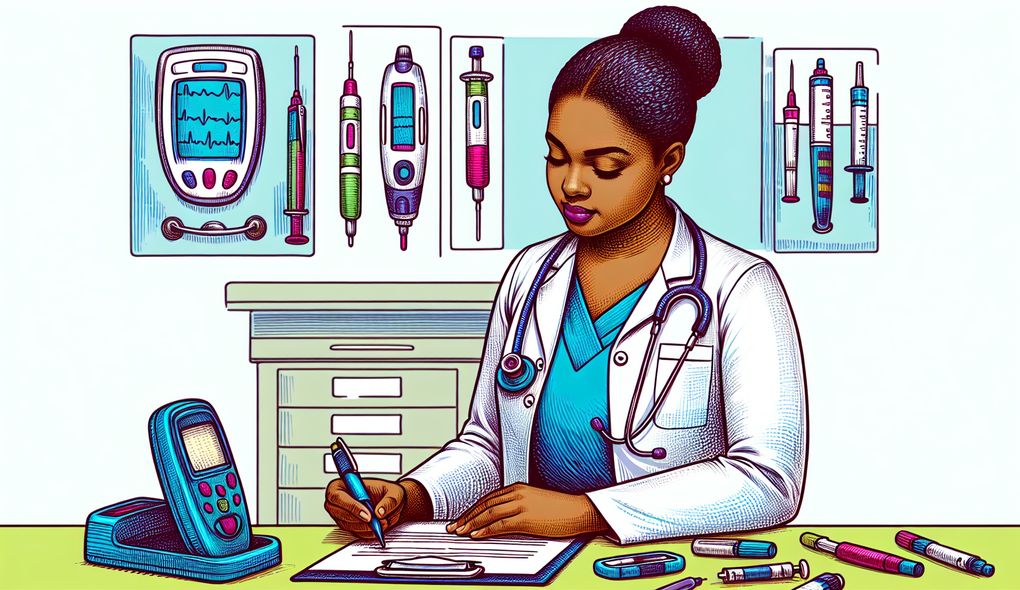Tell me about a time when you had to make a difficult decision in patient care. How did you approach it?
SENIOR LEVEL

Sample answer to the question:
In my previous role as an Endocrinology Nurse Practitioner, I encountered a challenging situation when I had to make a difficult decision in patient care. One of my patients, a diabetic, was experiencing extreme fluctuation in blood sugar levels despite following the prescribed treatment plan. I approached this by conducting a thorough assessment of the patient's lifestyle, diet, and medication adherence. It became evident that the patient's diet was not aligned with their treatment needs. I spoke with the patient about the importance of a balanced diet and the impact it can have on managing diabetes. Together, we created a personalized meal plan and I provided resources and educational materials. This decision positively influenced the patient's blood sugar control and overall well-being.
Here is a more solid answer:
As a Senior Endocrinology Nurse Practitioner, I faced a challenging decision in patient care that required utilizing my advanced knowledge of endocrine diseases and treatments. I had a patient with a complex hormonal imbalance who was not responding to standard treatment options. After conducting in-depth research and consulting with endocrinologists, I proposed an alternative treatment plan that involved a combination of medications and lifestyle modifications. I gathered a multidisciplinary team of experts, including nutritionists and psychologists, to provide comprehensive care and ensure the patient's well-being. By effectively communicating the rationale behind the decision to the patient and their family, I gained their trust and collaboration in implementing the new treatment approach. This decision ultimately led to a significant improvement in the patient's condition and quality of life.
Why is this a more solid answer?
The solid answer expands on the basic answer by providing more specific details about the difficult decision and the impact it had on the patient. It also emphasizes the leadership and team-management abilities required to gather a multidisciplinary team for comprehensive care.
An example of a exceptional answer:
During my tenure as a Senior Endocrinology Nurse Practitioner, I encountered a challenging decision in patient care that demonstrated my exceptional abilities in patient assessment, leadership, and communication. I had a patient with poorly controlled diabetes and comorbidities who required a higher level of care coordination. After careful assessment, I identified gaps in the patient's self-management skills and lack of support at home. Realizing that effective management required a collaborative approach, I organized a team consisting of the patient, their family, a nutritionist, and a social worker. Together, we developed an individualized care plan with a focus on education, lifestyle modifications, and emotional support. By fostering a strong therapeutic alliance and using motivational interviewing techniques, I empowered the patient to take control of their health. This decision resulted in improved glycemic control, reduced hospitalizations, and enhanced patient satisfaction.
Why is this an exceptional answer?
The exceptional answer goes above and beyond by showcasing a high level of expertise in patient assessment and care coordination. It highlights the ability to involve multiple stakeholders and address not only the medical aspect but also the patient's psychosocial needs. The outcomes achieved demonstrate the impact of the difficult decision made.
How to prepare for this question:
- Review challenging patient cases you have encountered in the past and reflect on the decisions made and their outcomes.
- Familiarize yourself with the latest advancements in endocrinology nursing to enhance your knowledge and decision-making abilities.
- Practice explaining complex medical decisions in simple terms to effectively communicate with patients and their families.
- Develop your leadership skills by seeking opportunities to lead interdisciplinary teams and collaborate with other healthcare professionals.
- Stay updated on electronic health record (EHR) systems to efficiently document and track patient care.
What are interviewers evaluating with this question?
- Advanced knowledge of endocrine diseases and treatments.
- Excellent patient assessment and diagnostic skills.
- Strong leadership and team-management abilities.
- Ability to educate patients on complex health issues.
- Proficient in using electronic health record (EHR) systems.
- Outstanding communication and interpersonal skills.

